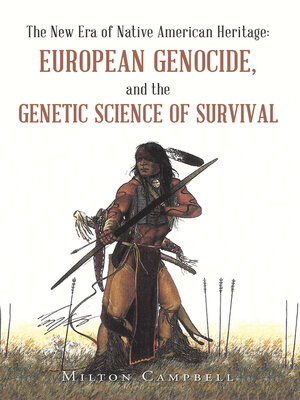The New Era of Native American Heritage
ebook ∣ European Genocide, and the Genetic Science of Survival
By Milton Campbell

Sign up to save your library
With an OverDrive account, you can save your favorite libraries for at-a-glance information about availability. Find out more about OverDrive accounts.
Find this title in Libby, the library reading app by OverDrive.



Search for a digital library with this title
Title found at these libraries:
| Loading... |
Native North Americans and their history from colonial times to the present day have been a topic of discussion and study by nearly every ethnic group and nationality around the world. It could be said that the Native American has been cast and recast, interpreted, reinterpreted, and misinterpreted more than any other ethnic group throughout modern history. The Anglo centric perspective remains the most widely adopted way of looking at Native American civilizations. It is still widely accepted as positive that white colonists "discovered "the North American continent and due to their racial superiority supplanted the less developed, "savage" native inhabitants. Even the seemingly more Native American friendly interpretations of history still cast them as a conquered victimized and oppressed minority, over simplifying them as uniformly dignified, peace-loving people who lived harmoniously with nature.
Historians, and those who interpret the past are inevitably a product of the social, cultural, and political issues of their time, as well as their education and echelon of society. Fortunately, as societies evolve, responsible historians have been prompted to reconsider these long-held assumptions within the context of a more evolved and diverse perspective. Even more importantly, however, in the last several decades, historians of Native American descent are finally enriching the field of North American history by adding the vital dimension of their long-absent native voices. Native Americans themselves are at long last being invited to participate in interpreting and researching their own ancestral colonization.






